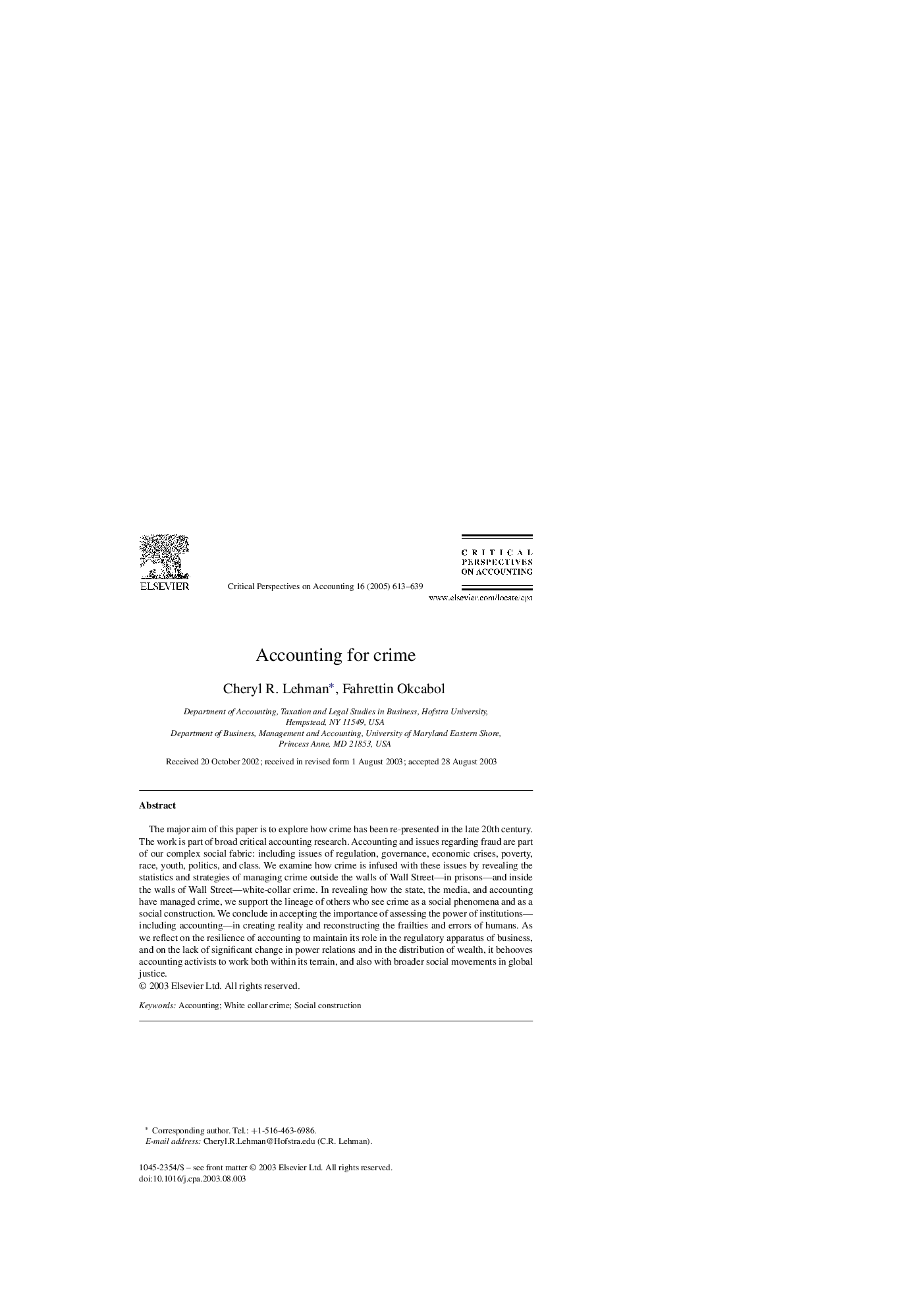| Article ID | Journal | Published Year | Pages | File Type |
|---|---|---|---|---|
| 10488214 | Critical Perspectives on Accounting | 2005 | 27 Pages |
Abstract
The major aim of this paper is to explore how crime has been re-presented in the late 20th century. The work is part of broad critical accounting research. Accounting and issues regarding fraud are part of our complex social fabric: including issues of regulation, governance, economic crises, poverty, race, youth, politics, and class. We examine how crime is infused with these issues by revealing the statistics and strategies of managing crime outside the walls of Wall Street-in prisons-and inside the walls of Wall Street-white-collar crime. In revealing how the state, the media, and accounting have managed crime, we support the lineage of others who see crime as a social phenomena and as a social construction. We conclude in accepting the importance of assessing the power of institutions-including accounting-in creating reality and reconstructing the frailties and errors of humans. As we reflect on the resilience of accounting to maintain its role in the regulatory apparatus of business, and on the lack of significant change in power relations and in the distribution of wealth, it behooves accounting activists to work both within its terrain, and also with broader social movements in global justice.
Keywords
Related Topics
Social Sciences and Humanities
Business, Management and Accounting
Accounting
Authors
Cheryl R. Lehman, Fahrettin Okcabol,
